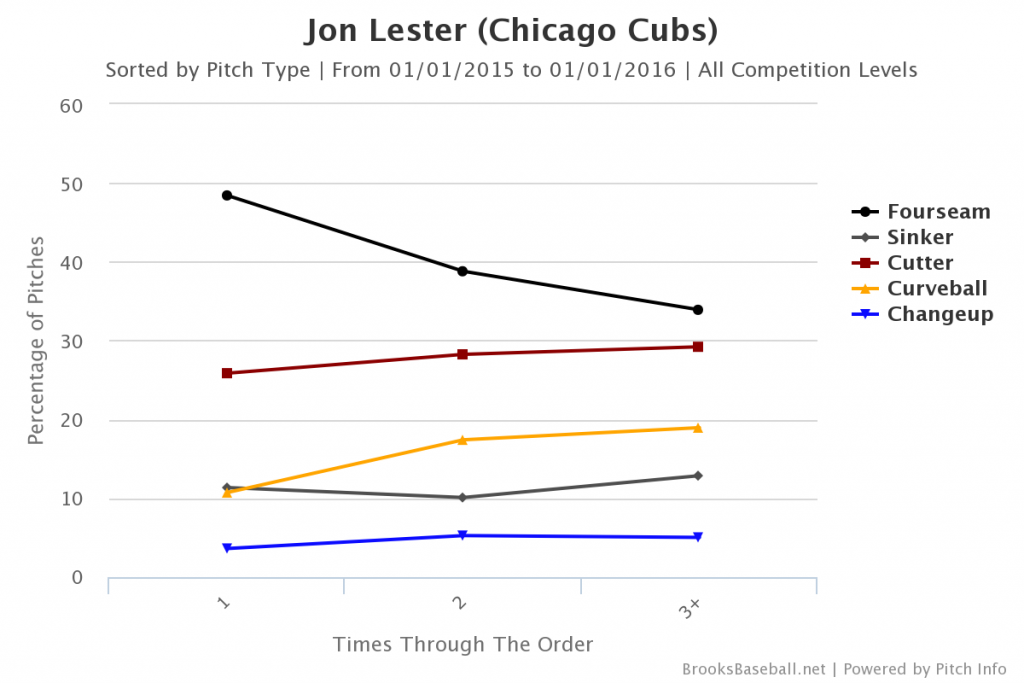Introduction
The Cubs were in position for a series win against a hapless Phillies team. Sure, the Phillies were sending out bona fide ace Cole Hamels and polished pitching prospect Aaron Nola, but these Phillies had great difficulty scoring runs and the Cubs had Jon Lester, Jake Arrieta, and Jason Hammel on the bump throughout the series. It wasn’t going to be a walk, but the Cubs were expected to win this series.
One bullpen meltdown, a no-hitter, and a regression start from Hammel later, and the Cubs’ team issues seem to be highlighted in neon yellow for all the league to see. The series began with a competent Jon Lester start, something that was commonplace in the month of July, outside of a hiccup against the White Sox. Lester has posted Game Scores of 73, 75, and 80 heading into Friday’s game in which he posted a 63 Game Score. He’s also gone seven innings in every start in July, which eases some of the burden the bullpen has had to bear in order to cover for the lack of innings from the fourth and fifth starters.
Let’s go ahead and get this out of the way
Inning: Fourth Inning
Score: Cubs leading 1-0
Situation: Cody Asche batting with two runners on
Batter(s): Cody Asche
One of the key moments in the game was the ball Lester and Ross thought was a strike in the fourth inning with Cody Asche batting. Lester gave up a loud two-run double two pitches later and it set the Phillies up for a frustrating comeback win that would set the tone for the series. You’ll see that every once in a while out of Lester; he will get frustrated with calls he thinks he’s earned:
Lester's like Zambrano in that missed calls will often cause him to make mistakes bc he's mad but he's white so no one mentions it
— SKO (@StartKyleOrton) July 24, 2015
Sahadev Sharma’s reply to the tweet is important to note here as well. There’s not really a solution for this, Lester is a finished product and it’s folly to expect him to suddenly stop reacting to umpire calls. At this point it’s something to watch for as the starts get to be more and more important.
Traditional Line
7 IP 7 H 2 RA 0 BB 6 SO
Pitch Mix
Lester’s breakout in 2014 had a lot to do with his curveball breaking out which led to a drastic reduction in changeups. Lester’s pitch mix followed that script:
| Pitch Statistics as coded by PITCH INFO | ||||||||||
| Pitch Type | Velo (Max) | H-Break | V-Break | Count | Strikes / % | Swings / % | Whiffs / % | BIP (No Out) | SNIPs / % | LWTS |
| FA (Fastball) | 92.0 (93.7) | 5.56 | 9.90 | 42 | 27 / 64.3% | 15 / 35.7% | 2 / 4.8% | 6 (0) | 21 / 58.3% | -2.62 |
| SI (Sinker) | 91.4 (92.1) | 8.50 | 6.00 | 11 | 8 / 72.7% | 5 / 45.5% | 0 / 0.0% | 4 (2) | 4 / 57.1% | 0.30 |
| CH (Changeup) | 84.1 (86.2) | 9.29 | 5.19 | 4 | 2 / 50.0% | 2 / 50.0% | 0 / 0.0% | 2 (0) | 0 / 0.0% | -0.45 |
| CU (Curveball) | 73.3 (75.8) | -5.23 | -3.23 | 16 | 11 / 68.8% | 7 / 43.8% | 3 / 18.8% | 3 (1) | 8 / 61.5% | -0.36 |
| FC (Cutter) | 87.8 (89.8) | -0.15 | 4.66 | 22 | 14 / 63.6% | 13 / 59.1% | 5 / 22.7% | 5 (3) | 9 / 52.9% | 2.26 |
It’s been established over the past two years that Lester’s best pitches are his curve and cutter, and those two held true to form in his start against the Phillies. Lester’s ability to work deep into games is owed to his ability to lean on his cutter–curve combination as he turns the lineup over.
Lester does his best work during the second time through the order where he is holding hitters to a .228/.284/.327 slash line. That’s also when he is most effective at mixing in all of his pitches as indicated by the chart above. For Lester, getting beat on his best pitch, the cutter, in the fourth inning in the manner that he did is rare. Lester did well to buckle down after the fourth both in terms of holding his pitch count down and keeping the Phillies off the scoreboard.
| Inning-by-Inning Pitch Totals | ||||||||
| Inning | Pitches in Inning | Strikes in Inning | Strike% in Inning | Cumulative Total Pitches | Pitch LWTS in Inning | |||
| 1 | 11 | 7 | 63.64 | 11 | -0.335 | |||
| 2 | 16 | 10 | 62.50 | 27 | -0.350 | |||
| 3 | 12 | 8 | 66.67 | 39 | -0.072 | |||
| 4 | 24 | 13 | 54.17 | 63 | 1.947 | |||
| 5 | 10 | 7 | 70.00 | 73 | -0.848 | |||
| 6 | 12 | 9 | 75.00 | 85 | -0.350 | |||
| 7 | 10 | 8 | 80.00 | 95 | -0.862 | |||
Thirty-two pitches to cover the fifth, sixth, and seventh innings is an incredibly efficient amount.
Trends
With the added caveat that April starts count too, Lester has been more or less as advertised since his disastrous start to the 2015 season. He’s gone 103 innings since May 1st and logged a 2.71 ERA while holding opponents to a .229/.284/.371 slash line over that stretch.
Keep in mind
The last time Lester didn’t go seven innings was June 25th. He’s averaging just shy of 6 1/3 innings every time he takes the bump and that’s taking into account an April in which he struggled immensely. Should the Cubs not make an upgrade in the rotation—something of a need at this juncture—Lester’s innings become even more important. Hendricks and whoever-is-healthy-and-available aren’t going deep into games and are taxing a bullpen that has shown a propensity to give up the booty every once in a while.
Conclusion
There’s a reason you give Lester $155-million and it’s stretches like the one he’s enjoying in July.
Lead photo courtesy of Matt Marton-USA TODAY Sports

